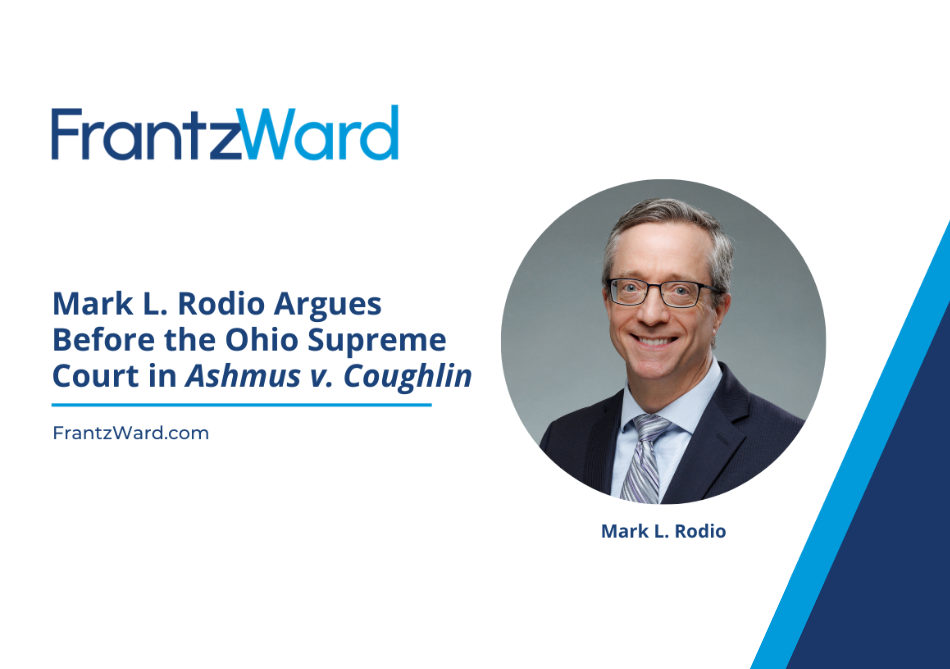Mark L. Rodio Argues Before the Ohio Supreme Court in Ashmus v. Coughlin
On March 12, 2025, Mark Rodio presented oral arguments before the Ohio Supreme Court in Ashmus v. Coughlin. The case raises important questions about a Seller’s duty to disclose property conditions, such as:
- is a sewer easement or line located within the easement a defect that must be disclosed by a Seller, and
- are property Sellers obligated to disclose hidden physical conditions based on the property’s current use or based on the potential Buyer’s future use?
The dispute arose after the Coughlins signed a contract for $1.01 million to purchase a Bay Village property requested a release from the purchase agreement and the return of approximately $100,000 in earnest money after their 14-day due diligence period had expired. The Coughlins claimed that a recorded sewer easement, which was disclosed on the title commitment but not explicitly noted on the seller’s disclosure form, was a defect that adversely affected the property’s use and value as they planned to tear down the existing home and build a new one (allegedly in the same area as the easement).
Ashmus, represented by Mark, sued for breach of contract after reselling the property to a different buyer at a lower price. The Coughlins filed a counterclaim alleging negligent, reckless, or intentional misrepresentation or failure to disclose. Both parties asked the trial court for summary judgment.
The trial court ruled in the Ashmus’ favor, finding the Coughlins:
- had notice of the easement as it was in public records and
- offered no evidence the sewer adversely impacted the property use or value.
The court also ruled the sewer easement was not a defect that needed to be disclosed on the disclosure form.
The Coughlins appealed to the Eighth District Court of Appeals, which reversed the decision of the trial court, concluding that there were factual questions that remained about whether the sewer line impacted property value and whether it required disclosure.
The case was then appealed to the Ohio Supreme Court, whose decision will provide crucial guidance on disclosure obligations for residential real estate Sellers across the state. Ohio REALTORS® submitted an amicus curiae brief supporting Ashmus’ position that underground utilities, such as sewer lines, that can be found through a recorded easement don’t need to be disclosed on the residential property disclosure form.
The case was covered by Court News Ohio and the Ohio Channel.
Frantz Ward will continue to monitor developments in this case. If you have questions about real estate disclosure laws, contact Mark Rodio or any member of our Real Estate Practice Group.


